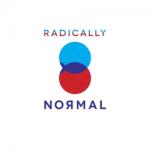I’ve led worship in a number of evangelical contexts for the better part of 24 years. It’s a responsiblity that I’ve loved because of my love of music and those occasional moments of corporate transcendence.
But there are some aspects that have troubled me over the years.
1. “Worship” feels like a misnomer
This one feels like a no-brainer, right? Worship is more than singing songs. As Paul tells the church at Rome, worship is about presenting ourselves to God as living sacrifices (Rom. 12:1). It’s the difference between having devotions and being devoted.
Is there a danger in referring to church singing as “worship?” Maybe not . . . but as a writer who toils under the conviction that words matter, I have to wonder.
Like I said, I love music. Singing is a significant way for me to express myself to God. But not everyone feels the same way. If singing songs didn’t do a lot for me and I usually heard the word “worship” within the context of church music, I wonder how It would color my view of worship. It didn’t seem like a good idea to marry such an important concept to one activity, especially one that’s so preferential.
I mean, if I found out that heaven meant standing around singing Chris Tomlin songs for eternity, I’d dread it.
Shouldn’t corporate worship have so many facets and expressions that there’s something there that resonates with everyone? When we do this one act and almost exclusively and call it worship, are we inoculating people against true worship?
2. It can be scripted and manipulative
My longest worship leading tenure was in a Foursquare church where I led for over 10 years. Being a more charismatic church, there was an expectation that worship would be an exciting event. I was constantly looking to help facilitate a more emotional experience.
I don’t necessarily look down on that—at times, I really enjoy it. The thing is that, eventually, I could create it.
Once you know what the types of songs your congregation loves, the things they respond to, and how to lead them from one place to the next, it becomes a sort of science.
I could map out the ideal worship service with its smoldering intensity and rising crescendo, and with great precision tell you what would occur where—down to the exact moment when John would speak out loudly in tongues (and then interpret himself) or Mary would stand up to dance. (Someday, I’ll write about that . . .)
Again, there’s nothing ultimately bad about discerning the rhythms and preferences of the people you lead. But there’s a point where you begin to wonder if we’d really notice if the Holy Spirit was present—or not.
Music is a powerful tool and rhythm, harmony, and melody have been used by many cultures and religious groups to work people into frenzies or initiate a meditative consciousness. We need to recognize the emotional impact music has on people—apart from its lyrical content, and how easily it can be manipulated.
It’s weird. When someone comes to me after a service to tell me how powerful a worship service was, it’s usually an emotional response to the music—and sadly, It’ll often be the response I planned when I chose to put specific songs together.
3. We don’t value honesty
One of my pastors had come out of the seventies-era Jesus-people movement—kind of the Christian Haight-Ashbury. This was a formative and powerful time in his life and an important part of that was the upbeat, feel-good music that accompanied it.
I was always more of a melancholic, and tend to be moved by songs that were a little more introspective. The pastor and I would meet every Monday morning, and he’d often express his frustration about my navel-gazing worship style. He wanted it to be upbeat and joyful . . . all the time.
If we look at the Psalms as a book of Old Testament hymns, we’ll quickly notice that at least 40% of those hymns are laments. Obviously, the Psalms are so much more than that . . . but they are often expressions of worship. And these expressions have moments of extreme despondency and frustration—sometimes they communicate horrible, horrible sentiments.
This tells me that God values expression that is honest (even when it’s ugly). In fact, I don’t think we can be truly worshipful unless we’re also recklessly transparent. But so much of our modern worship has one (often phony) tone. It creates this cognitive dissonance that tells us we need to stuff our true feelings and manufacture sunshine-happy-rainbow ones.
Some other worship questions
There are other aspects that I find occasionally struggle with:
- Shallow or theologically spurious lyrics
- Performance that can be a spectator sport
- The tendency to be its own rote liturgy (one song, greeting, three songs, offering, message, song, and we’ll see you next week folks)
As an worship leader, I feel we have often elevated music over many other important corporate activities. There are many biblical injunctions to sing to the Lord and I love that we do, but why do so many evangelical churches offer communion so irregularly? I know churches that struggle to do it even once a quarter.
How often do we take the time to corporately pray for each other? There are many ways to facilitate prayer into our services. Why do all of these other explicit commands take a back seat to singing songs in church?
Don’t get me wrong. I get a lot out of both leading and engaging in music as worship. These issues represent some of the questions I’ve wondered about for the many years that I’ve done it.
So tell me what you think. Am I out to lunch? Could (should) we be doing this differently? Leave me a comment and let me know what you think.












